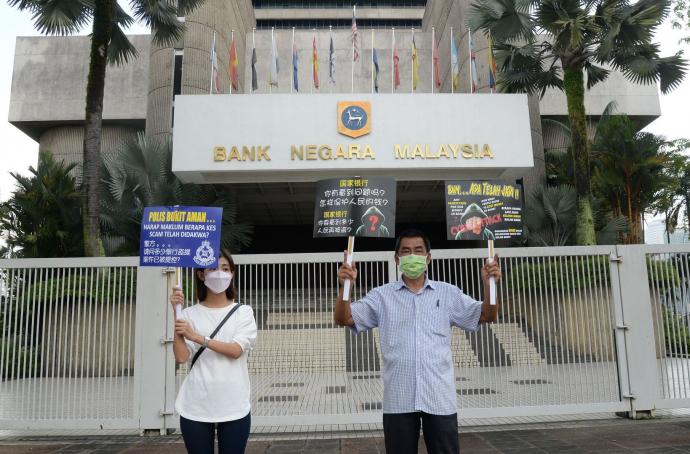Malaysian Woman Scammed Of S$6,000 After Downloading Book App
New mobile applications have become so common these days that we often download them without a second thought.
However, when a Malaysian woman downloaded an app to read novels and keyed in her bank details, she was unwittingly scammed.
35-year-old Guo Hui Wen lost about S$6,000 (RM20,000) from the incident.

Source: Sin Chew Daily
She later made a police report but was told to lodge a complaint with her bank.
Unfortunately, the bank informed her that they would not be taking responsibility for the incident.
Money transferred out of account after downloading book app
According to eNanyang, Ms Guo, 35, came across a Facebook ad about a novel reading app on 30 Dec 2021.
Curious, she wanted to download it and was instructed by the app’s customer service to use a link provided. After downloading it, she found that the app required a subscription fee of S$5 (RM16).
Initially, she wanted to pay through an e-wallet. However, customer service insisted that she had to use the in-app bank transfer function.
As it was a small sum, Ms Guo said she didn’t think much about it and logged into her bank account via the app.
She recalled that the interface looked legitimate as it resembled a banking website, so she didn’t find anything amiss.
But as soon as she keyed in her bank details, the app froze, and she could not proceed.
Contacted someone called Jimmy on Telegram
The app’s customer service contacted her on Facebook regarding the issue and told her to contact someone named Jimmy on Telegram, Sin Chew Daily reports.
After reaching out, Jimmy notified Ms Guo that they needed time to process the payment as the app was experiencing problems.
As soon as she hung up, she received four notifications, each informing her that S$1,576 (RM4,999) had been transferred out of her account.
Ms Guo logged into her bank account and found only S$507 (RM1,610) left.
That was not the end of her worries. Not long after, more money was mysteriously siphoned away, and she was eventually left with S$3 (RM10) in the account.
Bank would not take responsibility
After the incident, Ms Guo immediately filed a police report. But according to eNanyang, she was told to lodge a complaint with her bank instead.
She then went to her bank’s headquarters and did so, only to be told three weeks later that the bank would not be held responsible for the incident.
Ms Guo felt this was unfair as she said she was not asked for a transaction authorisation code (TAC) when her money was transferred out.
During the fifth transfer, she was logged out of her own bank account.
When she contacted customer service about the matter, they pointed out that she didn’t receive a TAC as her phone number with the bank account had been changed.
Hope authorities clamp down on scams
According to eNanyang, Ms Guo held a press conference with Kepong Community Service Centre head Yee Poh Ping on Friday (10 Jun).
During the conference, she shared that it has been half a year since the incident, and she does not know the progress of her case.
Speaking on the matter, Mr Yee said he believes the bank should cooperate with the police to gather information for their investigation. But because both parties were slow to take action, the scammers had time to move the money.

Source: eNanyang
Moving forward, he expressed hope that the police, the Central Bank of Malaysia, and the Communications and Multimedia Commission (SKMM) will clamp down on scams and strengthen the prevention of such crimes.
Do not reveal bank details to suspicious parties
Losing your life savings to a scam is a harrowing experience, even more so when the authorities are unable to offer any help to retrieve the lost funds.
Even though this happened in Malaysia, scams are everywhere. Back home in Singapore, police have issued numerous alerts on new phishing scams and scam tactics and urged the public to be wary.
So stay vigilant and do not reveal your bank details to suspicious parties.
If you know someone who regularly downloads apps all the time after being enticed by advertisements, send this article to them as a precaution.
Have news you must share? Get in touch with us via email at news@mustsharenews.com.
Featured image adapted from Shin Min Daily News on Facebook and Elizabeth Hammond on Flickr.








